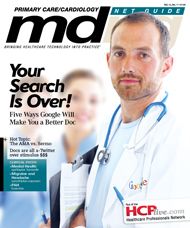Second Opinions
We Know You Have an Opinion about This!
We recently posted to HCPLive.com a news item titled “The AMA and the Obama Administration Don’t See Eye to Eye on Government-run Healthcare” and invited readers to post their thoughts and comments, several of which are reprinted below:
First of all, I do not believe that “healthcare” is an effective term, since it can include an unlimited number of things, and is poorly defined in every argument. How many of you clearly understand what your fellow citizens are including in this rubric? Second, there is no constitutional right associated with “healthcare.” I believe we should all have access to “healthcare insurance” but I do not know the best way to accomplish that. The Medicare Act of 1965 CAUSED the explosion of healthcare inflation we experienced over the ensuing decades, and reflects the lack of understanding of consequence that characterizes politically motivated government decisions. If you read hospital bills and you see $10-30 charge for a single dose of a routine oral medication that actually costs 1/10 as much, you have all you need to know about cost shifting from Medicare/Medicaid to private insurers, and you see clearly that insured Americans are currently paying dearly for government decisions. Pass universal government-paid “healthcare” and this will shift to increased taxes—who will be overseeing quality, or medical necessity, or appropriateness of care? Remember what happened in 1984 with the RBRVS prospective payment system? Did you like that? I do not know the answers but I doubt a single-payer government system or a public option system is the solution. A better start is to keep our current insurance system, mandate individuals to carry health insurance, financially assist those who need it to pay for mandated coverage, pass meaningful tort reform, and work on prevention and wellness.
—Michael Haberman, MD
I have worked in government systems, including VA, city, county, state, and private non-profit but heavily dependent on state and federal funding for about 90 percent of revenue. Medical care, like anything else, can be “good, cheap, or fast--pick two.” Every government system I have worked in has rationed care more than the private sector. We provide good care where I work, but do everything we can to discourage people from coming because of outrageous caseloads, onerous government-mandated paperwork, and year after year cutbacks in rates. Do you really trust the same people who brought you the IRS and the FEMA response in New Orleans to provide medical care? If you concentrate power in the hands of one group, you give up your freedom. Single payer is evil. If the government pays all the bills, they control all the care. How many of you accept Medicaid? If not, you cannot understand how intrusive and prescriptive bureaucrats can be. And why do I work in these government systems? I’m a good doc, a lousy businessman, and like caring for extremely complicated psychotic patients.
—Farrel Klein, MD
MDNG: Primary Care/Cardiology Edition physician editor-in-chief Jonathan Bertman, MD, recently asked “I’ll get $44,000 to Use an EHR? Where do I Sign Up?”
Dr. Bertman, you are absolutely correct. I have had to spend hundreds of thousands of dollars over the years to implement EHRs in my practices. Some of the direct costs were for a) IT programmers; b) an MIS person; c) equipment costs; d) software upgrades; and e) cost of scribes. Indirect Costs were i) cost of training; ii) patient wait time increase (yes, technology delays patient processing); iii) employee time to scan and upload offline data (letters, reports, etc); and iv) the cost of retraining (due to turnover) and errors. I am sure that someone will come up in the future with a perfect system, but at present it will cost at least $44,000 or more to implement the EHR for every practice. The subsidy from government will help but in the end physicians will end up paying the difference. Hopefully, this will be worthwhile in the longer run due to ease of finding charts in the practice and other EHR/EMR benefits. However, in the long run EHR/EMR is very useful in medical practice.
—Alex Pujari
